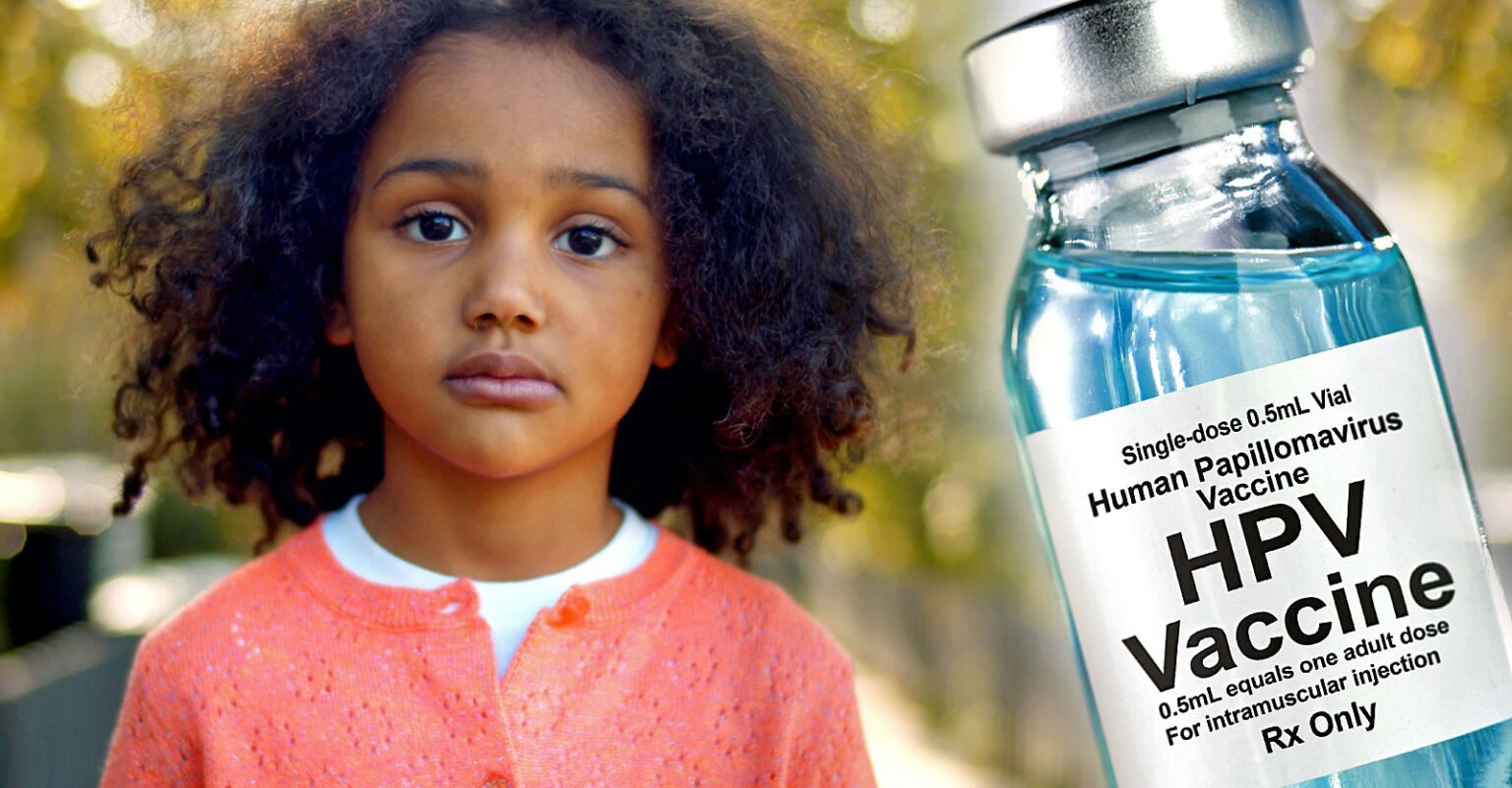by Megan Redshaw, Childrens Health Defense:
 The $519,399, four-year grant aims to increase uptake of the human papillomavirus, or HPV, vaccine among underserved adolescents whose parents are “vaccine-hesitant,” documents obtained by Children’s Health Defense via a Freedom of Information Act request revealed.
The $519,399, four-year grant aims to increase uptake of the human papillomavirus, or HPV, vaccine among underserved adolescents whose parents are “vaccine-hesitant,” documents obtained by Children’s Health Defense via a Freedom of Information Act request revealed.
The National Institutes of Health (NIH) is funding research at Nashville, Tennessee’s Meharry Medical College on how to increase uptake of the human papillomavirus (HPV) vaccine among underserved adolescents whose parents are “vaccine-hesitant,” documents obtained by Children’s Health Defense (CHD) via a Freedom of Information Act (FOIA) request revealed.
TRUTH LIVES on at https://sgtreport.tv/
The NIH awarded a $519,399, four-year grant in 2019 to Jennifer Cunningham-Erves, Ph.D., MPH, associate professor of internal medicine, to develop “tailored health communication messaging” to target vaccine-hesitant parents by testing out an intervention in a trial at a local clinic serving primarily African-American families and Medicaid recipients.
It is one of nearly 50 grants identified by CHD in June — totaling more than $40 million — awarded by the U.S. Department of Health and Human Services (HHS) to universities, healthcare systems and public health departments to increase HPV vaccine uptake among adolescents.
It is the second grant CHD identified that targets primarily Black families. As previously reported, FOIA documents revealed HHS awarded a $600,000, three-year grant to a Rutgers University researcher to develop “culturally tailored” follow-up text messages to Black vaccine-hesitant parents after their provider recommended the HPV vaccine for their children.
The grant awarded to Erves funds a project that develops a smartphone-based tool to send to parents before they see a provider that identifies the reasons behind their hesitancy and offers counterarguments tailored to their concerns.
Both grants fit into a broader research program across the various HHS institutions, including the NIH, to dedicate hundreds of millions of dollars toward creating strategies specifically tailored to increase vaccine uptake in general among vaccine-hesitant communities of color.
And they are in line with a national push to provide substantial grant funding to increase HPV vaccination rates by raising awareness and combating “misinformation.”
For example, Rep. Kathy Castor (D-Fla.) is promoting a federal bill, the PREVENT HPV Cancers Act of 2023, that would authorize $5 million annually through 2028 for an HPV vaccine awareness campaign.
The campaign would fund “tailored messaging” toward males, LGBTQ people, Black and Hispanic women, and rural communities.
Overcoming ‘vaccine hesitancy’ with a smartphone
Erves, an early career researcher, is designing a pilot clinical trial through research mentored by experts in HPV vaccine hesitancy and health equity.
Listed as mentors to Erves on the grant include Dr. Consuelo Wilkins of Vanderbilt University Medical Center, Pamela Hull, Ph.D., of Vanderbilt University Medical Center and Amanda Dempsey, M.D., Ph.D., MPH.
Dempsey was a professor of pediatrics at the University of Colorado at the time the grant application was filed, but the research project’s HPVVaxFacts website lists her as Regional Medical Scientific Director at Merck, the maker of the Gardasil HPV vaccine.
Dempsey also serves on advisory boards for Merck, Pfizer, and Sanofi Pasteur. She authored one of the seminal articles in the field of HPV vaccine hesitancy, finding that generic educational materials had little impact on vaccine-hesitant parents and giving rise to research like Erves’ on “tailored” interventions.
The pilot aims to develop a smartphone-based tool that sends text messages to parents designed to overcome their hesitancy about HPV vaccines — hesitancy the researchers said is linked to “vaccine concerns (i.e. safety and side effects), misinformation, lack of knowledge, and concerns of transmission through sexual activity.”
The goal is to test the tool in a large-scale clinical trial.
Researchers will draft a pre-visit text to parents who in the past refused HPV vaccination for their children. Parents can click on a link in the text that will lead them to a webpage where they can take a quiz that gauges their attitudes and beliefs about the HPV vaccine.
By categorizing the responses, researchers can define the types of hesitancy parents have and then respond with messages specifically tailored to change their minds.
The messages use the child and parents’ names to personalize the materials and match the materials — including images — to the parents’ ethnicity and race.
For example, parents whose quiz responses indicate they are concerned about whether the vaccine is effective might receive this message:
“The HPV vaccine is highly effective in protecting against 93% of cancers caused by HPV. It is most effective when given before age 13.”
Those concerned with serious adverse impacts might receive this message:
“The HPV vaccine is very safe. Vaccines, like any medications, can have side effects. Many people who get the HPV vaccine have no side effects. Some people report mild side effects like a sore arm, fever, nausea, or fever. Serious reactions are very rare.”
Read More @ ChildrensHealthDefense.org




